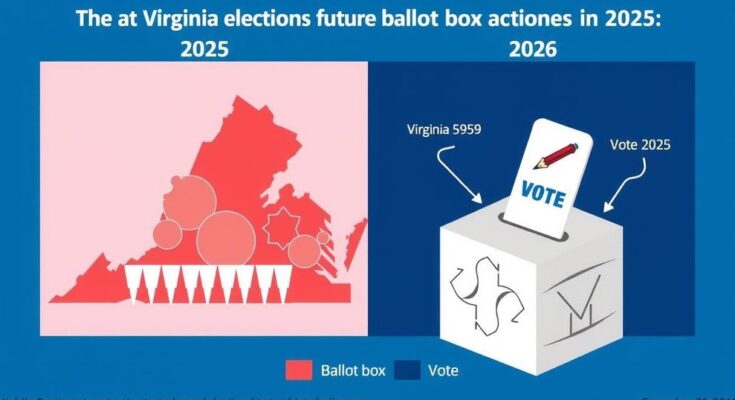Democrats retained their legislative majority in Virginia by winning two of three special elections. These elections serve as an early indicator of voter sentiment following President-elect Trump’s victory and are crucial for the upcoming gubernatorial contests and Congressional midterm elections, highlighting Virginia’s role as a significant political battleground.
In a significant political development, Democrats managed to maintain their slim majorities in the Virginia legislature by securing victories in two out of three special elections held recently. These elections, viewed by analysts as indicative of voter sentiment post-President-elect Trump’s election, also serve as an early indicator for the forthcoming gubernatorial contests in Virginia and New Jersey, and the anticipated Congressional midterms in 2026. Notably, the Associated Press has predicted Democratic wins in Loudoun County, where both special elections occurred.
The special state Senate election resulted in Democrat Kannan Srinivasan, currently a member of the House, defeating Republican Tumay Harding. This seat had been vacated following the election of former Democratic state Senator Suhas Subramanyam to Congress. In the closely related state House race to fill Srinivasan’s former seat, Democrat JJ Singh, a small business owner, emerged victorious against Republican Ram Venkatachalam.
Loudoun County, a suburban area surrounding Washington D.C., has transformed from a Republican stronghold to a Democratic-leaning region in recent years, becoming embroiled in nationwide discussions concerning transgender policy and sports participation. In the third special election, held in a state Senate district west of Richmond, Republican Luther Cifers won against Democrat Jack Trammell, further influencing the political landscape in the state.
Democrats now hold a 21-19 majority in the Virginia Senate and a 51-49 lead in the House of Delegates, while Republican Governor Glenn Youngkin approaches his last year in office. Virginia’s political framework is distinctive; state law prohibits governors from serving consecutive terms, thereby preventing Youngkin from seeking re-election in 2024. The heightened interest in Virginia’s governorship stems from the fact that it along with New Jersey, is among the few states conducting gubernatorial elections following a presidential election, positioning it as a key barometer for national political trends.
The special elections in Virginia signal the shifting political dynamics within the state and have underscored the importance of upcoming gubernatorial elections in both Virginia and New Jersey, as well as the broader Congressional landscape for midterm elections. The recent elections are a reflection of the changing voter demographics and sentiments following the election of President Trump, providing a glimpse into the future political environment leading up to the more significant electoral events of 2025 and 2026.
The results from Virginia’s recent special elections illustrate the continuing influence of Democratic leadership in a traditionally competitive state. They signal critical battlegrounds for the upcoming gubernatorial races and midterms, indicating a potential shift in voter sentiment shaped by national issues. As both parties assess these outcomes, they underscore the vital role this state will play in the broader national political narrative in the years ahead.
Original Source: www.foxnews.com




